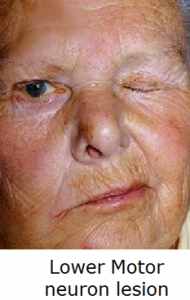

MedFriendly®


Lower Motor Neuron Paralysis
Lower motor neuron paralysis is a type of paralysis (loss of
movement and/or sensation) that is due to injury or damage in the
brain or spinal cord. This injury or damage in the brain or spinal
cord causes damage to the cell body (the main part of the cell)
and/or axons (the part of a nerve that sends a message) of the
lower motor neuron. A lower motor neuron is the part of a motor
neuron (a type of nerve cell) sends messages via upper motor
neurons to the skeletal muscles. Upper motor neurons are
neurons (nerve cells) in the motor cortex (an area of the brain
located in middle, top part of the brain) that form pathways within
the brain and from the brain to the spine. Skeletal muscles are
muscles that are connected at either or both arms or legs with the
skelton of the body.
FEATURED BOOK: Principles of Neurology by Adams and Victor
In lower motor neuron paralysis, wasting away of muscles occur. The muscle wasting is
severe, with affected individuals losing 70 to 80% of their body bulk. Low muscle tone
(tension) and weakness is present in affected muscles. Muscles with low tension usually
appear flabby. There is also loss of deep tendon reflexes, which is when the muscle
contracts (shortens) in response to a stretched muscle that caused by a sharp tap. In
lower motor neuron paralysis, pathological (abnormal) reflexes are also absent. The loss
of reflexes occurs because the reflex arcs (paths followed by nerve impulses) are
damaged forever. In lower motor neuron paralysis, nerve impulses travel abnormally and
muscle twitching is present.
"Where Medical Information is Easy to Understand"™
If the spinal cord is totally cut, all voluntary muscle control is lost. If the spinal cord is partially cut, muscle
function will vary, depending on which particular nerves are still entering which particular areas. Compare
lower motor neuron paralysis with upper motor neuron paralysis, a type of disorder that causes loss of
movement and sensation due to injury or damage to upper motor neurons.















